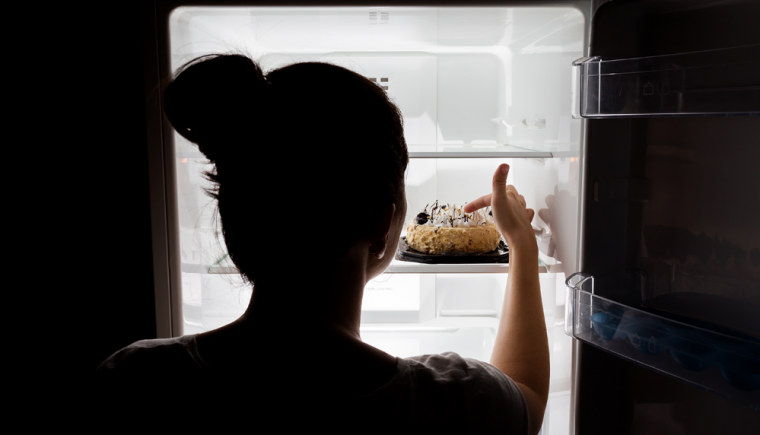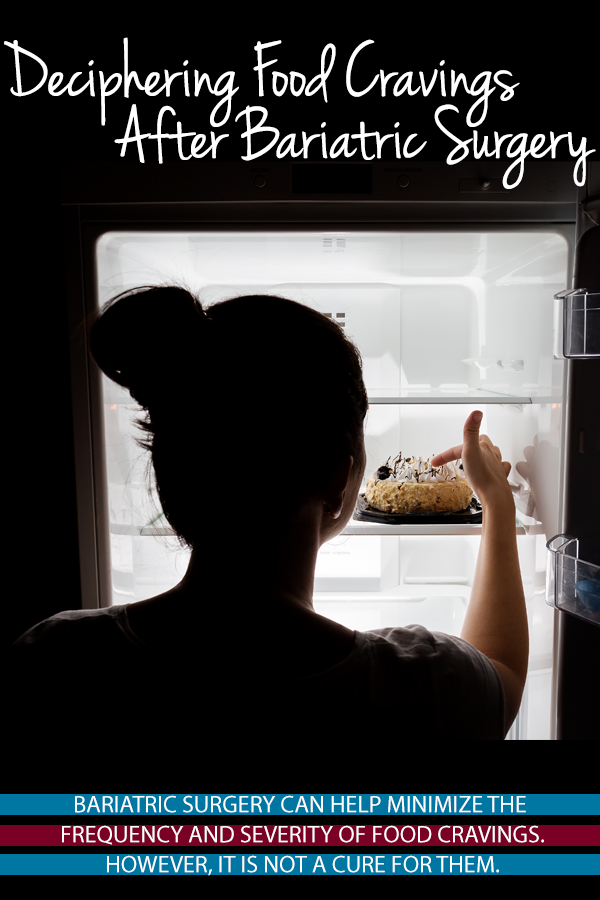
Decipher Food Cravings After Bariatric Surgery
May 13, 2019I have been counseling pre and post-operative bariatric patients for over three years. One of the most common things my patients hope that bariatric surgery will help them with is their food cravings. While bariatric surgery can help minimize the frequency and severity of food cravings, it certainly is not a cure for them.
This is because food cravings are usually behavioral in origin. This means that we are craving something due to a feeling, emotion or situation. There can be some physiological reasons for cravings as well, which I will also touch on in this article. You can deal with those pesky cravings! So, put those chips and guacamole down, and dive into this article instead to learn how to decipher food cravings after bariatric surgery!
Deciphering Food Cravings And Carbohydrates
In general, people crave salty foods, crunchy foods, and sweet foods. I’ll give ten points to who can tell me what these three have in common: that’s right, carbohydrates! I am the first person to admit that I love carbohydrates. Most foods high in carbohydrates taste great, so what’s not to love? I am not a dietitian that tells people “carbs are bad” because they aren’t.
Carbohydrates are needed by our body to function. However, their function is solely to provide us with energy. If you are sitting watching TV, eating chips or candy, you are loading your body with energy, but you aren’t using any energy sitting there. So instead, your body takes those calories and stores them as fat. And just like that, the scale number goes up.
Now that we’ve established that carbs are delicious, but not always our friend, let’s discuss why we crave them. While researching this article, the top three reasons I found that we crave carbohydrates are depression with low serotonin levels, addiction, and stress or environmental factors. Let’s start by discussing depression and its link to cravings. Many people who experience depression also have low serotonin levels.
Think of serotonin as a “feel good” hormone. If you have low levels of it, you don’t “feel good” as often.
It is still unclear if a dip in serotonin is the reason you feel depressed, or if an external trigger (i.e., my car broke down) causes depression and a drop in serotonin. Regardless, when this happens, people find themselves reaching for their favorite carbs.
Low serotonin also occurs when we do not absorb enough sunlight (a good reason to get outside for your daily exercise routine). When you consume carbohydrate foods, you will seem to feel better in about 20 minutes. So really, you are self-medicating. If you find that you have these depressed moods often, it is recommended that you seek professional help in the form of counseling to learn to deal with these moods in a healthy manner.
Craving Carbohydrates Is An Addiction
The second most common reason for craving carbohydrates is an addiction. And yes, I mean addiction to food! Many studies have proven that the more carbohydrates you consume, the more of them you want to consume. What a horrible cycle to get caught in. If you are on the carb carousel and can’t get off, I recommend that you track your intake (there are plenty of apps out there) in order to help monitor your carbohydrate intake. You will be able to see when it is time to cut yourself off. You will have to work on decreasing your daily dose of carbs slowly (because it really is an addiction), but once you have weaned yourself down, you can step off that carousel for good! When it comes to carbohydrates and food in general, it is essential that you think of food in a different way after having surgery.
I also recommend noting when you experience the cravings. If you are reaching for your chips or chocolate, stop to think “why am I eating this?”. This is what we call “mindful eating” meaning that you are consciously thinking about and deciding what you are eating. If you find the reason you are eating those carbs is that you simply want to, but aren’t actually hungry, you will know you have an addiction and need to make the choice to not eat that food. When you are first tackling it, you may need to substitute that food with another (such as an apple or carrots), but you should find that eventually, the craving will die down.
There has also been research that found that humans have a ‘universal carbohydrate craving time’ between 3:30 pm and 5 pm daily. This is a “neurochemical phenomenon”.
This does not mean that you can’t overcome it. As I said earlier, acknowledge the craving and the reason for it, and choose to not give in to it.
Environmental Factors And Cravings
The last point I’d like to touch on is environmental factors and cravings. Our environment is something we have a lot of control over. Let me give you this example to explain better what I mean. I have been going to the same vacation home on the beach since I was born. It is my favorite place in the world. However, I have also associated that environment with “treats.”
I grew up with a mother that made delicious and healthy home-cooked meals. We rarely had foods like chips, candy or soda. But when we went on this vacation every year, we were allowed to splurge. So now, 30 years later, every time I go there I have an urge to buy those “unhealthy” foods and eat out a lot. However, this is ultimately up to me. I have the power to decide what I’m going to buy, what I’m going to cook and where we are going to eat out. I find that I have to focus on this much more when I'm in that environment. There may be all sorts of situations that trigger poor food choices for you, you have to stop to realize it, and once you do, you can start to make changes.
In Conclusion
In conclusion, I want to remind you that food cravings are a normal part of life. Having them does not make you a bad person nor does it mean that you can’t be healthy, lose weight, and enjoy life. You are not alone if your cravings are still there after having bariatric surgery.
I encourage you to reach out to your surgeon, dietitian or local support group because you will find that many others are struggling with the same issue. And please join me in teaching people that food, and carbohydrates, in particular, are not the enemy. Fuel your body with lean protein, whole grains, and healthy fats, and you will find yourself much happier and healthier!
 | ABOUT THE AUTHOR Danielle Houston RDN, LD is a Registered Dietitian Nutritionist and Licensed Dietitian at New You Bariatric Center who has been specializing in weight loss (bariatric) surgery for the past 3 years. She graduated with a BS in Dietetics from the University of Arizona in 2008 and is currently the Practice Manager (and dietitian) at New You Bariatrics in Irving Texas.Read more articles by Danielle! |




